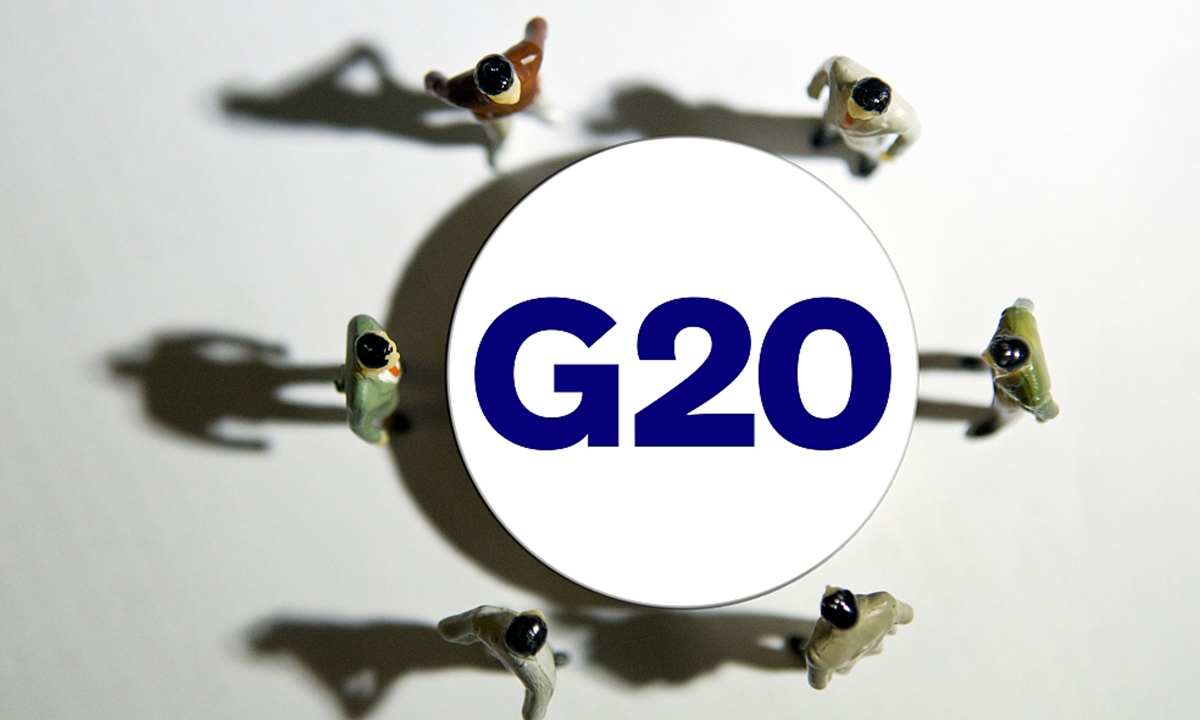
File photo
G20 members should set a proper example for practicing real multilateralism, Chinese State Councilor and Foreign Minister Wang Yi said during the summit of G20 foreign ministers via video link on Tuesday. He noted that multilateralism is not a high-sounding slogan, still less a cover for unilateral actions.Yet Washington is still highly likely to take advantage of the occasion to create division, continuing gathering its allies to confront Beijing and Moscow. Washington is now clamoring against Beijing on almost all multilateral occasions, lobbying all countries it may convince to keep distance from China.
As a matter of fact, US President Joe Biden's recently wrapped up visit to Europe was actually a trip of stigmatizing China.
The G20 focuses on discussing and solving issues related to the stability and development of the global economy. But as the US always treats topics related to economic order construction and development with a mind-set of power competition, it may start a new round of actions to slander and smear China.
Washington could try to turn the G20 - which takes a lead to coordinate countries for unified solutions to problems of global development -- into an arena for economic leadership.
The US has never accepted China's economic development model abroad with stated-own economy as the mainstay. It has absurdly called China's moves as economic aggression. Therefore, in order to highlight that the US model is better than China's in terms of securing global economic order and helping other countries develop, it will slander and discredit China even more.
This mentality of Washington is seriously derailed from the realities of the current era - the US is still living in the 20th, or even the 19th, century. As the global economy has integrated, more and more G20 countries will stay away from hard-line US' stances.
There were severe disputes during the recent G7 summit. But due to the atmosphere of G7, they were reluctant to emphasize their differences. Regardless, under the G20 framework, if the US still deliberately provokes power competition in topics where trade with China is involved, it is bound to spark backlashes. And China will not sit back. It will firmly counterattack the US' irrational and absurd narratives.
The US has annoyed many countries by bucking trend of the time. For example, countries like Germany and France prefer close economic ties with China, and they hope there will be a constructive way out for China-US tensions. However, the US is obsessed with life-or-death competition with China - meaning it eyes on division rather than unity.
The US has been creating "small cliques" around the world, but it cannot change the trend that G7's declining share in the global economy. The group can hardly represent the main voices in terms of global economy.
In the contrast, the G20, a more inclusive multilateral mechanism, is stronger and more representative in economic development issues.
Since the financial crisis in 2008, it has been the G20, rather than the G7, that has made substantial contributions and helped solve problems in the global economic order. The former is more universal, more important, and more constructive than the latter. A vital reason why the US doesn't want to see an influential G20 is that developing countries' voices are louder within the platform. Washington takes this as a threat to its own interests and its dominant status.
Washington may uphold unity and solidarity orally, but simultaneously engage in moves to create more small circles in a bid to offset positive functions of the G20. This is the hidden danger the G20 faces. All members of the group should be vigilant against this.
Days before the G20 Foreign Affair Ministers' Meeting, an official at the US Department of State said on Wednesday there is no meeting planned between US Secretary of State Antony Blinken and Chinese State Councilor and Foreign Minister Wang Yi at the G20 gathering in Italy. The statement came after the Financial Times reported that Beijing and Washington were discussing such a meeting.
This shows that US' China-related decisions regarding multilateral matters is deeply influenced by US domestic politics.
The filthy, unhealthy, and poisoned attitude within the US toward China has determined that the Biden administration can hardly propose any constructive suggestions for China policy. Nor can it act with a constructive attitude toward China. By stark contrast, Washington's moves to make small circles and provoke confrontations against China are being applauded in the US.
We have to say that the Biden administration's China policy has actually become a victim of the poisoned and hysterical US political atmosphere against China.
The author is professor at the Institute of International Relations of the China Foreign Affairs University. opinion@globaltimes.com.cn

